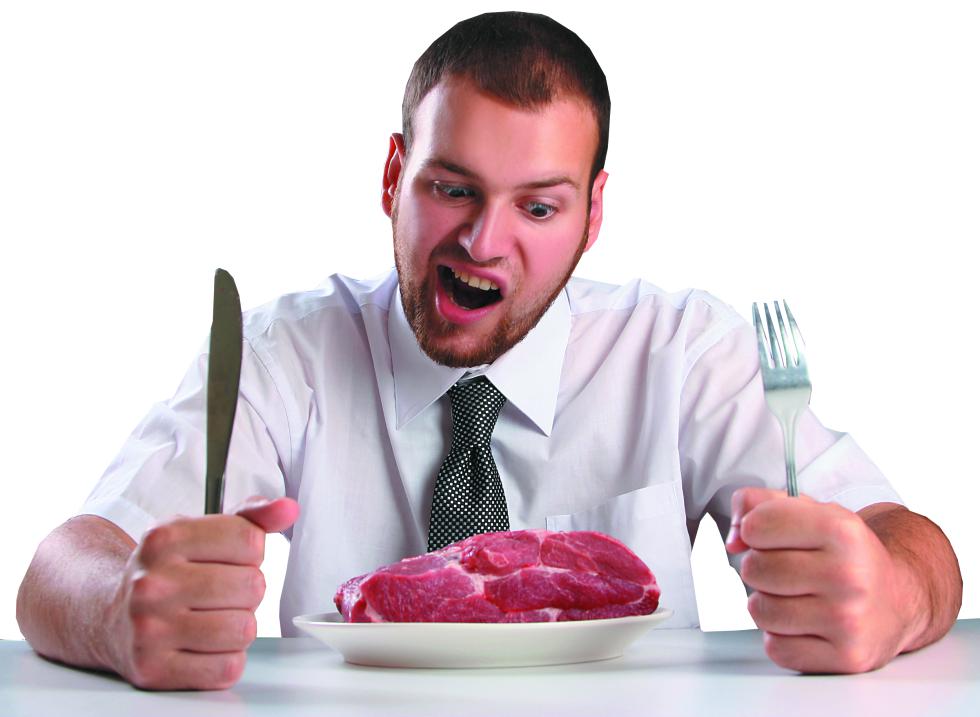E veryone has counted calories at some point. Some of us tally them religiously. I only think of them when I’m staring at the side of a cereal box at two in the morning. But given the state of our warming world — rising sea levels, falling bee populations, and all that — we really should put those math chops toward stabilizing the health of the planet. We can start by paying as much attention to the energy that goes into producing our food — we’re talking fossil fuels here — as we do to the nutritional energy we get out of it.
Earth is heating up, and we are consuming more calories than ever — about 25 percent more than we did in 1970, according to the U.S. Department of Agriculture. That’s no coincidence. It takes energy to produce any food, but some foods suck up more energy than others.
Look at the foods you choose to eat through the lens of energy efficiency, and the results are pretty astonishing.
When it comes to producing food in energy-inefficient ways, the biggest culprit is industrially-raised meat. The connection between livestock and climate change first came to popular attention in 2006, when the Food and Agriculture Organization of the United Nations published a report called “Livestock’s Long Shadow,” which revealed that global livestock production is responsible for about 20 percent of all greenhouse gas emissions in the world — a level surpassing that of all planes, trains, and automobiles worldwide.
Should we all stop eating meat? Not necessarily. But ethical issues aside, industrial meat — especially beef — tops our list of energy-inefficient foods. Fellow meat lovers everywhere: I feel your pain, but it’s true.
The solution is pretty obvious. Moderate consumption can prompt a trend toward lower production. So, demand less industrial meat and junk food, and reach instead for locally-sourced meat, fruits, vegetables, and whole grains. Decisions like these have the power to slow global energy consumption by relying less, over time, on shiny packaging, factory food processing, and far-flung shipping by land, sea, and air.
It’s not just meat. Junk food, over-refined carbohydrates, and highly processed ingredients of all sorts do serious environmental damage, requiring far more energy to produce than they give back to us nutritionally. Since foods with little nutritional value — so-called empty calories — are not as filling, it takes more willpower to stop eating and buying them.
We’ve gotten hooked on those bold, junky tastes in recent decades. A University of California, Berkeley study in 2004 found that almost one in three calories consumed by the average American comes from sweets, soft drinks, alcoholic beverages, or salty snacks.
But we also burn huge amounts of fossil fuel in processing, packaging, shipping, and distribution. Take bottled water. Each plastic bottle, cap, and packaging requires about 3.4 megajoules of energy to produce, which means that the 31.2 billion liters of bottled water produced in 2006, for example, drained us of the equivalent of more than 17 million barrels of crude oil, as estimated by the Pacific Institute.
We now raise 60 billion food animals a year — 10 times the number of humans on earth. And it takes 40 calories of energy to produce one calorie of beef protein, according to the American Society for Clinical Nutrition (compare that to a calorie of corn, which requires 2.2 calories to produce).
Why so high? Because of how much energy a growing cow consumes. More than half of all the grain grown in the U.S. — mostly corn — is fed to animals, which is enough to feed 800 million people, as a 1997 Cornell University study pointed out. Industrial farm animals also receive 50 percent of all the antibiotics we produce in this country each year — another huge energy expense.
In his book Food Matters, Mark Bittman calculates that a typical steer consumes the energy equivalent of 135 gallons of gasoline before slaughter, “enough for even some gas guzzlers to drive more than halfway from New York to Los Angeles, or for an energy-efficient car to make the drive back and forth twice.”
Bittman offers another way of looking at it. The energy cost of producing a steak dinner for a family of four is equivalent to driving an SUV around for three hours while leaving all the lights on at home. More energy-efficient food choices offset this. If everyone in America skipped one serving of factory beef a week, we would offset the effects of all the SUVs in the country this year by one-third.
So here’s your hot tip for the day: don’t let the planet heat up too much on your behalf. The global population is expected to rise by about half in the next 40 years. That will give us more than three and a half billion new mouths to feed. Let’s make each meal count.•
Contact Hunter Styles at hstyles@valleyadvocate.com





